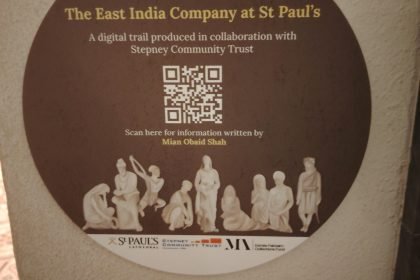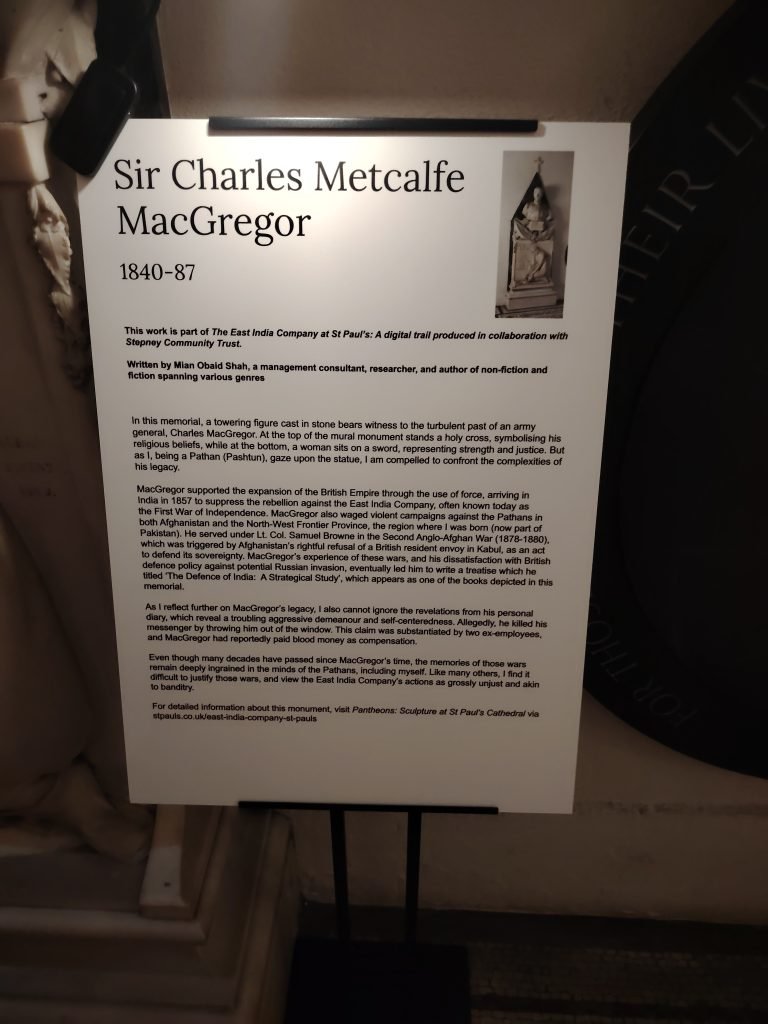
I participated in the East India Company Trail at St. Paul’s Cathedral and conducted research on Charles MacGregor, which has now been published and displayed at the Cathedral.
In this memorial, a towering figure cast in stone bears witness to the turbulent past of an army general, Charles MacGregor. At the top of the mural monument stands a holy cross, symbolising his religious beliefs, while at the bottom, a woman sits on a sword, representing strength and justice. But as I, being a Pathan (Pashtun), gaze upon the statue, I am compelled to confront the complexities of his legacy.
MacGregor supported the expansion of the British Empire through the use of force, arriving in India in 1857 to suppress the rebellion against the East India Company, often known today as the First War of Independence. MacGregor also waged violent campaigns against the Pathans in both Afghanistan and the North-West Frontier Province, the region where I was born (now part of Pakistan). He served under Lt. Col. Samuel Browne in the Second Anglo-Afghan War (1878-1880), which was triggered by Afghanistan’s rightful refusal of a British resident envoy in Kabul, as an act to defend its sovereignty. MacGregor’s experience of these wars, and his dissatisfaction with British defence policy against potential Russian invasion, eventually led him to write a treatise which he titled ‘The Defence of India: A Strategical Study’, which appears as one of the books depicted in this memorial.
As I reflect further on MacGregor’s legacy, I also cannot ignore the revelations from his personal diary, which reveal a troubling aggressive demeanour and self-centeredness. Allegedly, he killed his messenger by throwing him out of the window. This claim was substantiated by two ex-employees, and MacGregor had reportedly paid blood money as compensation.
Even though many decades have passed since MacGregor’s time, the memories of those wars remain deeply ingrained in the minds of the Pathans, including myself. Like many others, I find it difficult to justify those wars, and view the East India Company’s actions as grossly unjust and akin to banditry.

